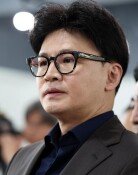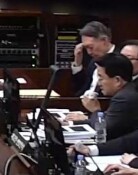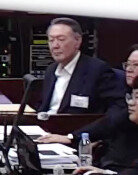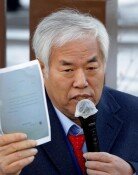Stop Corruption in Education
Corruption in the Seoul Metropolitan Office of Education has reached a serious level. Bribery is prevalent in personnel affairs, and even ordinary staff have received kickbacks. Against this backdrop, attention is being drawn to a criminal investigation of Kong Jeong-taek, former superintendent of Seoul schools. Separately, the Korea Teachers and Educational Workers` Union will reportedly stage the largest rally in history in the run-up to the June 2 local elections. If the union begins a political offensive against the Lee Myung-bak administration as it did through anti-government statements, public education will greatly suffer. Education officials, who are at the vanguard of public education, are seeking bribes and the progressive union has turned into a political group.
In this dire situation, the government is busy using education to win over the public instead of playing the roles of monitor and supervisor. This has led to policy failures. Populist educational policies have resulted in a decline in student performance, threatening to undermine Koreas educational competitiveness, an engine of the countrys economic growth. All of this is a sobering reminder of the grim condition domestic education is in.
The investigation into alleged corruption within the Seoul Metropolitan Office of Education is centered on former Superintendent Kong. An official close to Kong has been arrested on the charge of accepting bribes. The official reportedly kept a bankbook containing 1.4 billion won (1.2 million U.S. dollars) in his office drawer. Kong has also attracted suspicion by giving plum posts to close aides, who spent 3.4 billion won (2.9 million dollars) to help his campaign in the 2008 superintendent election. So attention is focused on if the arrested official has a connection to Kong and how he amassed the 1.4 billion won.
Speculation has also arose over irregularities in the entrance exams of autonomous private high schools and over the college admissions officer system. The Lee administration has pushed for the two systems as its main education policies aimed at expanding scholastic autonomy and curbing private education. Lax implementation of educational policies of great significance will weaken the fundamentals of domestic education. The governments poor response, however, has invited such alleged irregularities.
In the entrance exams of the autonomous private high schools, students from wealthy families were reportedly admitted under a separate screening for those from needy households. A provision on the autonomous high schools says the screening is for students from families receiving government subsidies or from poor households. Middle schools, however, recommended students from households whose financial situations abruptly worsened due to the business failure of their parents. The Education, Science and Technology Ministry is largely to blame for this because of the ambiguous provision. Education Minister Ahn Byong-man, however, said Thursday, We will punish principals and those in charge of the screening process for abusing the system, which was implemented by the government with good intent. Parents should also be punished if they also abuse the system. By this comment, Ahn has tried to shift his responsibility to students, parents and schools.
In addition, certain students allegedly manipulated documents submitted to college admissions officers. Critics say the college admissions officer system can cause controversy over assessment standards since the system in and of itself is subjective. Ahn said Friday, however, Theres been no case of the systems abuse, adding, This is truly surprising and I was impressed by the commitment of universities.
While the government is being complacent over what it has done and turning a blind eye to reality, the teachers union has decided to stage a massive rally on Teachers Day May 15. The union will also issue another anti-government statement. Some say the rally is to influence the June 2 local elections, in which superintendents will be also elected.
At this critical juncture, the government and law enforcement agencies should raise their guard. The lack of willingness by prosecutors to investigate corruption in education has prevented the problem from coming to the surface. They have done so since corruption in education is a tricky matter involving multiple parties including parents, schools and education offices. Prosecutors, however, must be committed to eliminating corruption in education.
For its part, the government should stick to rule of law in responding to the union, while take a step-by-step approach in dealing with measures expected to cause adverse effects, such as the college admissions officer system. Prime Minister Chung Un-chan yesterday expressed his willingness to ease the policy of the three nos no ranking of high schools, no independent college admissions, and no university admissions in return for donations. Why Chung made the comment is puzzling since the government is opposed to the easing of the policy. The government must review its educational policies based on the Lee administrations initial promise of emphasizing autonomy and competition in education.







